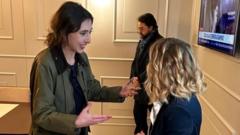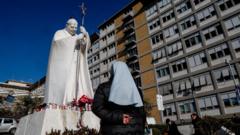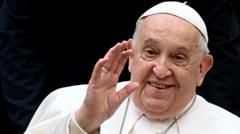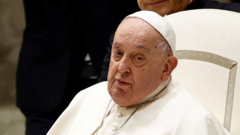Cecilia Sala, a 29-year-old journalist and podcaster, returned to Rome after weeks in an Iranian jail, igniting discussions around her arrest and diplomatic negotiations that led to her release.
Italian Journalist Cecilia Sala Returns to Rome After Iranian Detention

Italian Journalist Cecilia Sala Returns to Rome After Iranian Detention
Cecilia Sala, an Italian journalist, has been released from an Iranian prison and welcomed home by the Italian Prime Minister.
Cecilia Sala, an Italian journalist, has finally returned to Rome after an intense and harrowing experience in an Iranian prison. Sala was initially detained on December 19, following the arrest of Iranian engineer Mohammad Abedini in Milan. This arrest raised suspicions that her detention was linked to tensions surrounding allegations of drone technology supply, believed to be responsible for the deaths of US soldiers.
During her confinement, reports indicated that Sala was held in solitary confinement at Evin prison, notorious for its harsh conditions. Her unexpected arrest garnered significant media attention and public outrage in Italy, particularly after her employer, Chora Media, disclosed her situation on December 27.
Upon her arrival at Rome's Ciampino airport, Sala was greeted by her emotional partner, Daniele Raineri, and received a warm welcome from Italian Prime Minister Giorgia Meloni, who had taken personal interest in her case. The Prime Minister expressed deep gratitude towards all diplomats and intelligence officials involved in the rescue efforts.
While Iran initially cited "violation of the Islamic Republic's laws" as the reason for her imprisonment, US officials indicated the possibility of her being detained as a form of political leverage in response to Abedini’s arrest, who is scheduled to appear in a Milan court on January 15.
In a statement, Prime Minister Meloni revealed that intense diplomatic communications had ultimately facilitated Sala's release. The Italian government's efforts were complemented by the personal involvement of Giovanni Caravelli, head of Italy's foreign intelligence service, who traveled to Tehran to negotiate her return.
Renato Sala, the journalist's father, expressed immense pride in his daughter and commendations for the exceptional handling of the situation by the Italian government. He described the circumstances surrounding her arrest as a complex “game of chess,” reflecting on the multi-faceted nature of the diplomatic negotiations that ultimately secured her freedom.






















